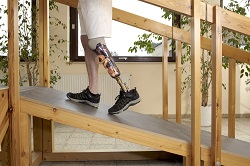 According to a study conducted by the Veterans Administration, more than 2,400 nurses in veteran’s hospitals suffered serious injury in 2014 just from lifting patients. The agency also found that VA hospitals spent more than $22 million dollars last year to treat injured nurses (a number that some officials warned may be a “substantial underestimate.”
According to a study conducted by the Veterans Administration, more than 2,400 nurses in veteran’s hospitals suffered serious injury in 2014 just from lifting patients. The agency also found that VA hospitals spent more than $22 million dollars last year to treat injured nurses (a number that some officials warned may be a “substantial underestimate.”
Still, though, the injury rate among VA nurses is down dramatically from a decade ago, thanks to sweeping changes that started in 2008. That was the year that the agency announced that it would change policies at all 153 of its hospitals in an effort to minimize the risk of injury to nurses and other staff members.
New Weight Limits Set
Before the changes imposed in 2008, nurses would routinely lift patients who weighed 100 or more pounds, often by themselves. Under the new policies introduced in 2008, the VA has established 35 pounds as the maximum weight a nurse or other caregiver can lift without assistance, either from another person or from a mechanical device. Because all patients exceed that limit, it forced hospitals to develop new approaches to lifting.
The most common mechanical device now used in VA hospitals is the ceiling lift, a pulley of sorts that attaches to the beams or joists in the ceiling of patient rooms. Hospital observers say that, throughout the VA hospital system, administrators have embraced the use of these devices to move patients from a hospital bed to a gurney or wheelchair. Though most hospitals installed them in a percentage of rooms, some, such as the VA facility in Loma Linda, California, installed them in all patient rooms and in other places patients need to go, such as x-ray rooms, clinics and dialysis treatment rooms.
Many VA hospitals have also installed the HoverMatt floating mattress in some of their rooms. The HoverMatt does just that—it has thousands of holes on its underside, so it floats above the ground, making it easy to transfer a patient to a gurney with minimal lifting. Many VA hospitals have also replaced old, manual gurneys with ones that are motorized and can be operated by the patient.
Contact Uliase & Uliase
For an appointment with an experienced New Jersey federal workers’ compensation lawyer, contact us online or call our office at 856-310-9002. We meet with clients weekdays between 9 a.m. and 5 p.m. We offer a free consultation for injured workers.

